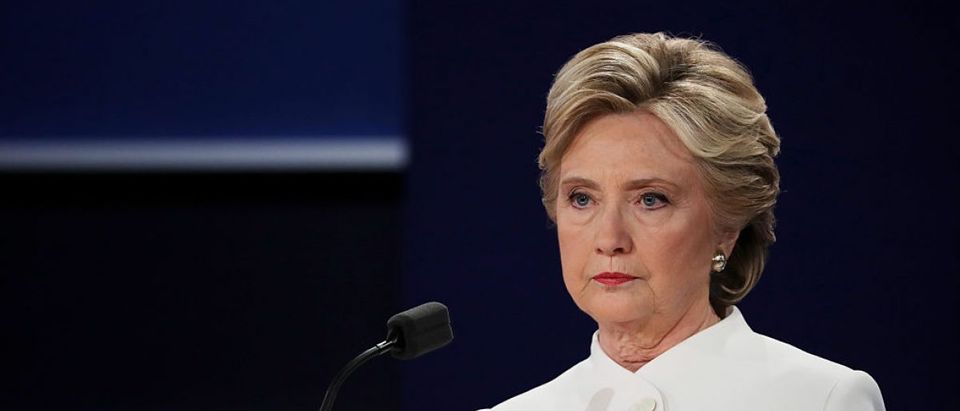According to CNN exit polls, 53 percent of white women voted for Donald Trump to be the next President of the United States. A whopping 26 percent of Latina women did the same.
That wasn’t supposed to happen.
Feminists were counting on women of every race and political persuasion to be so disgusted with Donald Trump they’d vote for the female candidate, whether she represented their beliefs or not.
“Many people hoped that women who typically vote Republican — enough of them, anyway — would see Mr. Grab Them by the Pussy as a wake-up call about how the men in their lives really feel about women and would, if only this once, quietly vote against hate and for their own dignity and that of their daughters,” writes Amanda Marcotte at Slate.
Whenever libertarian or right-leaning women vote against the feminist establishment, they’re accused of being backward, misogynistic, and just plain clueless.
It is precisely this phenomenon—I call it feminist bullying, or political correctness run amok—that brought about Trump’s victory.
“Liberals miss this by being illiberal,” writes Frank Bruni of The New York Times. “They shame not just the racists and sexists who deserve it but all who disagree. A 64-year-old Southern woman not onboard with marriage equality finds herself characterized as a hateful boob…Political correctness has morphed into a moral purity that may feel exhilarating but isn’t remotely tactical. It’s a handmaiden to smugness and sanctimony, undermining its own goals.”
Feminist writers at websites such as The Huffington Post and Slate are blind to this reality and were thus quick to chastise
American women immediately following the election results. “White Women Sold Out the Sisterhood and the World by Voting for Trump,” one headline read. “Donald Trump’s Victory Proves That America Hates Women,” read another.
The authors at these sites insist Americans are threatened by the idea of a woman at the helm, which is their fallback position every time a woman doesn’t move up in the ranks—whether in business or in politics.
But the laugh is on them: a whopping 87 percent of Americans say they “would vote for a woman if their party nominated a qualified one for president.” Only 33% said the same in 1937. If that doesn’t denote progress, what can I say.
Of course, what makes a candidate qualified is where the rubber meets the road—women differ in their opinions on this. Feminists, on the other hand, are monolithic. They’re like someone who’s newly in love: they can’t see straight.
Writes feminist Jill Filipovic, “One of the more perplexing questions is why white women, who ostensibly saw themselves reflected in Clinton herself, didn’t support her more strongly.”
That’s just it: most women do not see themselves reflected in Hillary Clinton, or in any member of the left-wing feminist establishment. As one woman who voted for Trump told London correspondent Malise Sundstrom, “I don’t want [Hillary Clinton’s] brand of feminism being a role model for myself, for my daughter, for other women I know.”
This doesn’t mean women like Ms. Sundstrom “refuse to evolve,” as Filipovic writes in another article. It means they know exactly what a vote for Hillary would mean.
It is not an exaggeration to say that if Hillary Clinton were our president instead of Donald Trump, the conversation we’d be having right this moment, and for the next four or eight years, would not be about making America stronger and safer via immigration control and by defeating ISIS, nor would it be about school choice or lower taxes.
It would be about how terrible life is for women and girls. It would be about how men need to rid themselves of their “toxic masculinity.” It would be about how men want to own women’s bodies. It would be about how women owe it to society to become CEOs in order to satisfy a minority of women who are obsessed with power and who couldn’t care less about the needs of children.
None of that is what American women want to talk about, nor is it what they believe.
At the end of the day, 53 percent of women want the same thing 67 percent of men want: to solve problems, not to create new ones. To unify, not divide. To bring men and women together by honoring their differences, not tear them apart by pitting them against one another.
A feminist presidency would have done just that.


